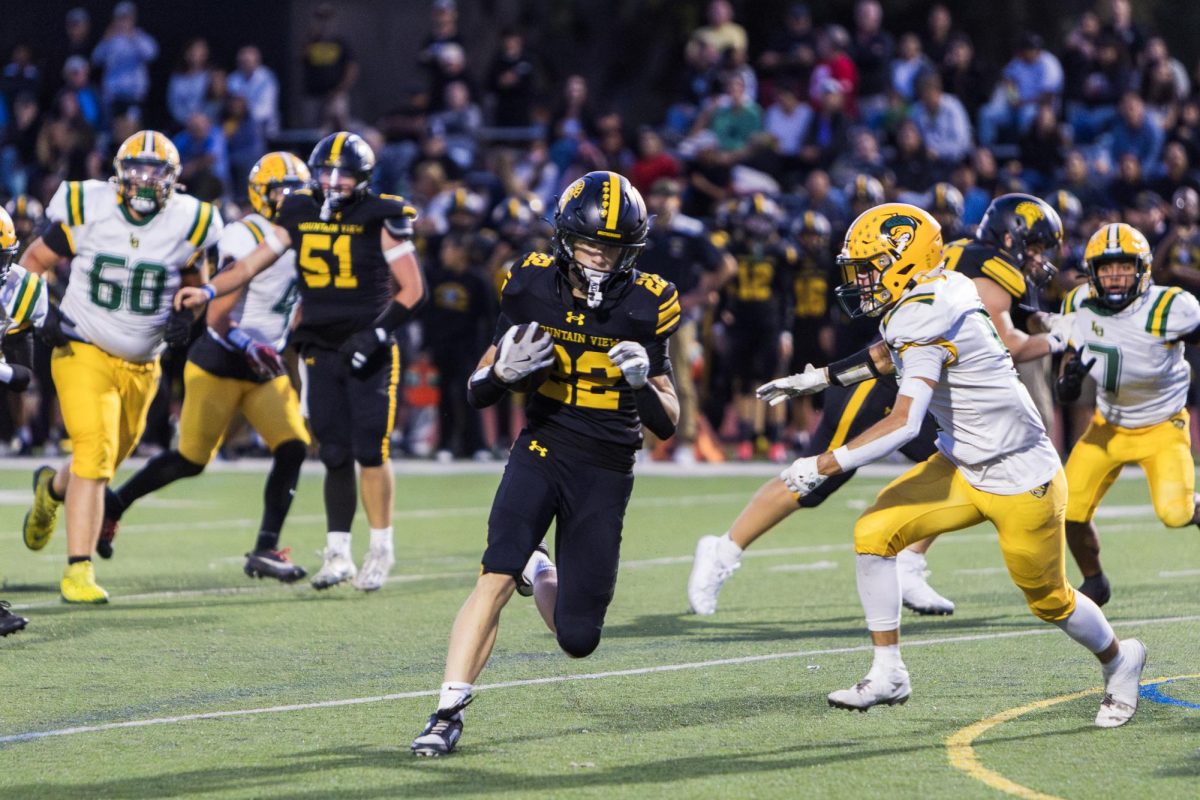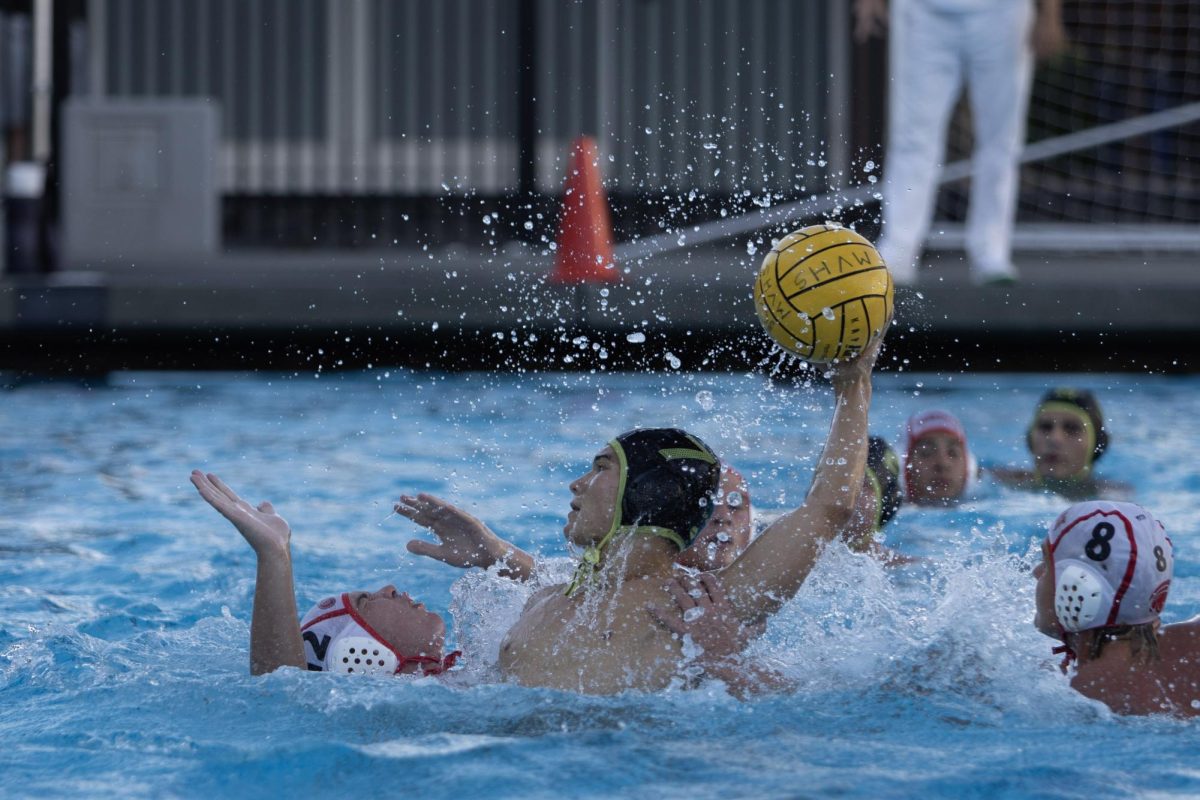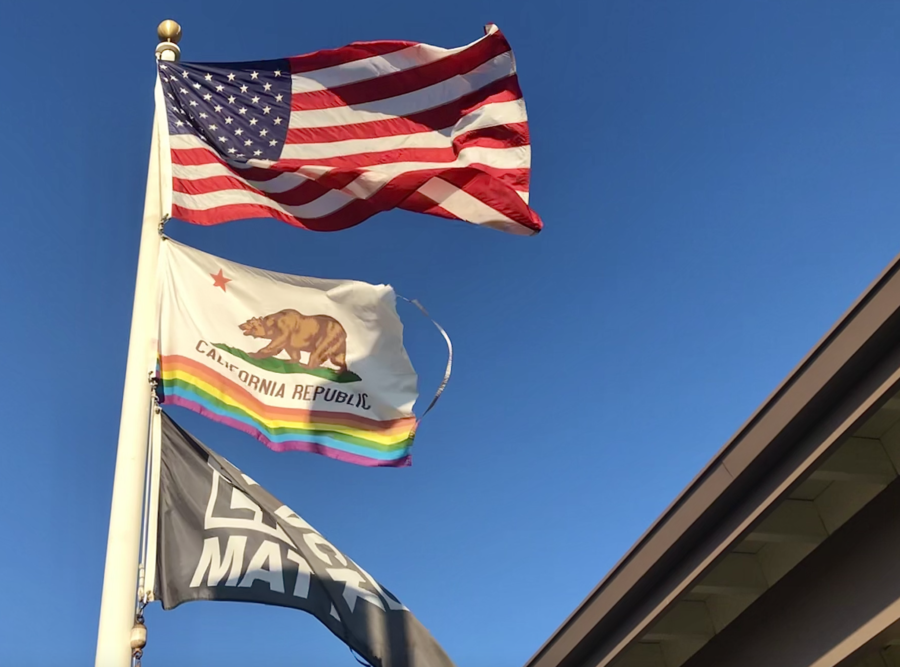Starting on the very first day of June, as students walked between classes, an unlikely source of color decorated the campus: rainbow ribbons tied around poles and pillars, put up by the school’s Gender-Sexuality Alliance club.
These ribbons were put up in honor of Pride month, an annual celebration of the LGBTQ+ community which recognizes the impact these individuals have had on history. One of the most significant events were the riots that occurred at Stonewall Inn during June of 1969, which are often referred to as a tipping point for the queer rights movement.
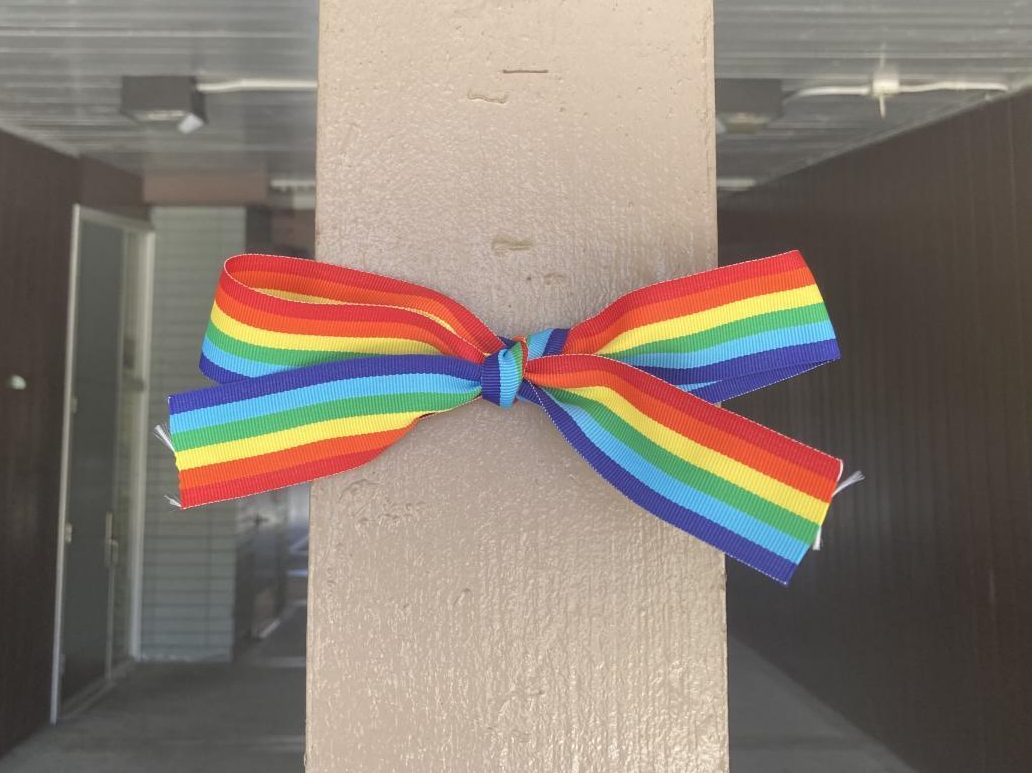
“We take this month to be proud of who we are,” Zephyr Jones, rising senior and president of GSA said. “[It’s] a tribute to the people at Stonewall, who were proud of who they were.”
The celebration of pride month allows the LGBTQ+ community, which has been historically oppressed, an opportunity to educate a larger audience of allies about their past.
“It honors our history,” Valerie Whitfield, rising junior and PR coordinator of GSA said. “It can get people curious. It can get people wanting to learn, ‘Why June?’”
Pride month also fosters an environment in which many people are able to talk about their gender and sexuality more openly while feeling safe.
“Pride month is recognition that we are here, that we should be accepted,” Lena Wessel, rising junior and vice president of GSA said. “It’s a time where we can all come together and celebrate being queer and commemorate all that we have fought for to get to the point that we are at today, [but] it’s also a reminder of how much more we need to go for us to be fully equal to the rest of society.”
Although there has been significant progress in LGBTQ+ rights, most queer people still experience homophobic and transphobic remarks or microaggressions — even within our school and community — whether it be people using gay in a derogatory way, using slurs, making fun of pronouns, or fetishizing sexualities, Jones said.
Pride month is recognition that we are here, that we should be accepted
“Not everyone is perfect, and it could be better, but right now it is pretty great,” Jones said. “I’m very thankful that I am here instead of being at other places in the U.S. where I might not be able to be myself.”
Although homophobia and transphobia are less overt within our community and school, according to GSA officers, there are still many changes that we can implement in order to create a safer space for LGBTQ+ individuals. Administration recently invited a few club officers of GSA to speak with them and voice their suggestions of how to make the school more inclusive and supportive of LGBTQ+ students and staff.
“One of the things that we’re trying to push for is more queer representation in the curriculum,” Wessel said.
This queer representation would range from following the LGBTQ+ movement through history classes to examining material written by authors using the singular they/them pronouns.
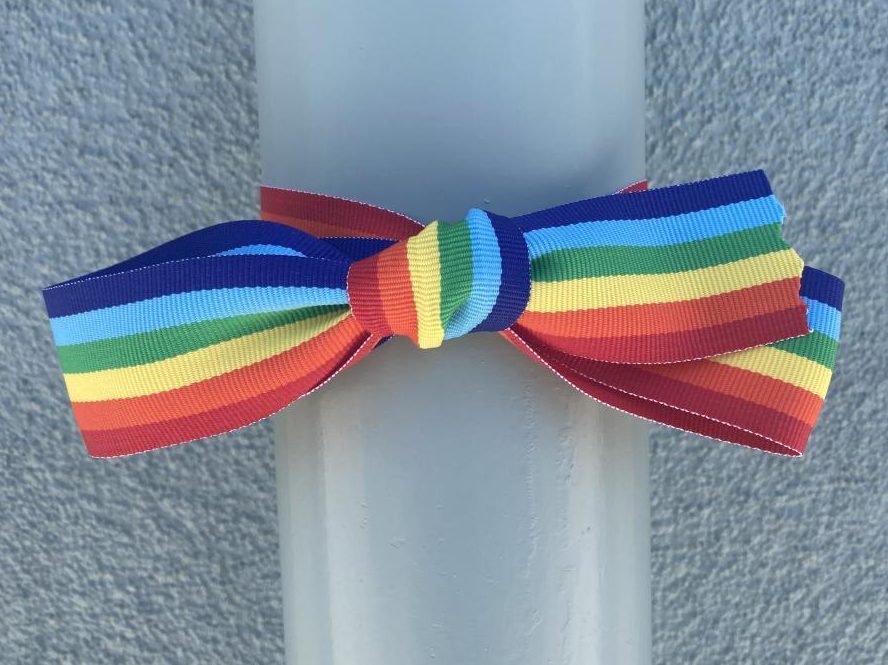
In addition, GSA wants the school to educate staff on the harms of homophobic and better enforce a policy of teachers calling out homophobic behavior in the classroom.
Allies of the LGBTQ+ community can engage in simple gestures such as asking and sharing pronouns, not perpetuating stereotypes, educating themselves, and being open-minded to learning and being corrected in order to be more inclusive and supportive.
“Just respect people’s identities like you’d respect any other aspect of a person,” Jones said.
The internet, GLAAD’s website (a platform which promotes acceptance and contains a variety of resources), and queer friends who are comfortable with sharing are all helpful resources recommended by GSA for individuals who would like to further educate themselves.
GSA is also a resource for all people to educate themselves, however the space is specifically centered around queer people, as implied by their recent name change from ‘Queer-Straight Alliance.’ In addition to representing GSA more appropriately, the club’s name change also pays homage to the original GSA organization, which changed their name from Gay-Straight Alliance to Gender-Sexuality Alliance.
Whether or not it’s Pride month, GSA is a space open to students who would like to connect with other queer students.
“If you are curious to learn about gender and sexuality and hang out with other people who also want to explore gender and sexuality, you should totally come [to GSA],” Whitfield said. “We provide support and snacks to all people, but particularly those with gender and sexuality that aren’t seen as normal by most people.”









